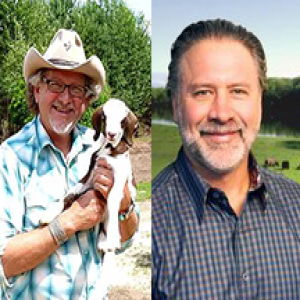
Monday Feb 25, 2019
Tractor Time Episode 26: Will Winter, Matt Maier, Thousand Hills Beef Cattle in Minnesota
Good day and welcome to Tractor Time, brought to you by Acres U.S.A., the Voice of Eco-Agriculture. I’m your host Ryan Slabaugh, and I’m happy to bring you the 26th episode of our podcast. Thanks again to Albert Lea seeds for making this episode possible.
A few announcements — Minnesota is the theme of today’s show. Acres USA will be in Minnesota in December for our annual conference, and one of the reasons — other than the great December weather there — is the amount of trailblazing agriculture that is going on in that region. You can learn more about our event at www.acresusa.com — tickets will go on sale later this spring. But before that, we’ll get into some of that agriculture, and talk to some of the country’s original grassfed beef farmers.
Today, we’re going to have two cattlemen on the show to discuss their operations and some current topics, a few of which are creating quite a debate: Matt Maier, with Thousand Hills Cattle in Minnesota, and Will Winter, a teacher of holistic animal medicine and founder of the American Holistic Livestock Association. I met Will at our annual conference a couple years ago, and recognized his trademark cowboy hat and beard. He’s written for our magazine and spoken to our audiences before, and we’re excited to have him on the show today.
I met Matt’s team at our conference last year and learned that they had pursued Savory Institute Hub certification, and are — and have been —leading the way with regenerative agriculture. Their cattle were grazing 365 days a year in Minnesota, which is not an easy thing to accomplish, and takes a disciplined system. Will and Matt worked together in Minnesota at Thousand Hills.
During our talk, they walked me through the Polar Vortex experience, where temperatures reached -30 on their farm, and their reactions to the Green New Deal, as well as sharing some ideas and inspiration for new cattle farmers.
Here’s a video that shows off the environment at Thousand Hills: